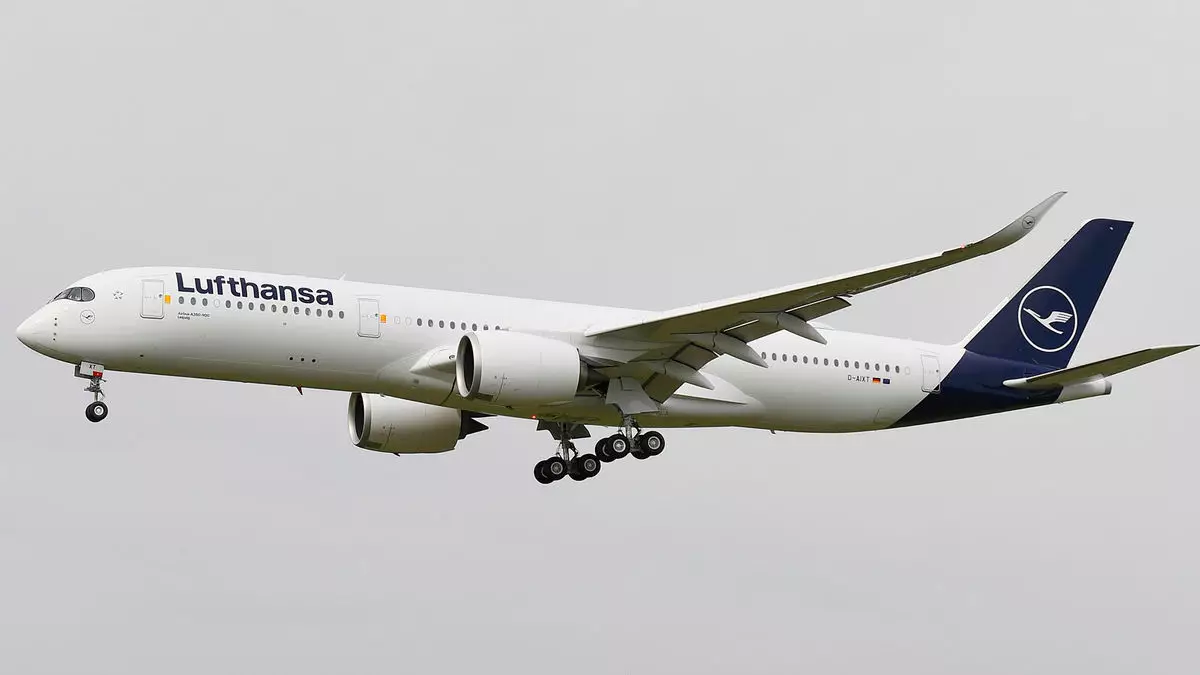The recent ruling by the U.S. Department of Transportation (DOT) demanding a $4 million fine from Lufthansa unveils troubling issues surrounding discrimination within the airline industry. This circumstance arose from an incident involving 131 Orthodox Jewish travelers, who were set to attend a religious event in Budapest in May 2022. The scenario unfolded aboard a flight from New York’s JFK Airport to Budapest, with a connection in Frankfurt that server as a crossroad for the passengers involved. This situation not only highlights challenges related to religious and cultural sensitivities but also raises questions regarding the balance between regulatory compliance and customer rights.
The crux of the DOT’s ruling centers around the assertion that Lufthansa’s actions were discriminatory. Upon reaching Frankfurt, the flight crew reported breaches of onboard mask mandates, ultimately leading to the decision that barred 128 of the 131 Orthodox Jewish passengers from boarding their connection to Budapest. Notably, the discrimination claims arose not from direct evidence of individual misconduct, but rather from the airline’s blanket action that grouped all Orthodox Jewish passengers together without identifying specific rule-breakers. The DOT indicated that this collective enforcement adversely impacted individuals whose sole commonality was their religion and ethnicity.
This dilemma opens up a significant discourse about collective punishment and its moral ramifications, especially within a multicultural society where sensitivity towards diversity is paramount. The incident raises profound questions about airline policies and their implementation — particularly how they affect a diverse passenger demographic under the umbrella of compliance enforcement.
In response to the claims, Lufthansa issued a series of public apologies and committed to enhancing staff training to mitigate future incidents of antisemitism and discrimination. The airline’s collaboration with the American Jewish Committee illustrates an effort to address the sensitivity required when interacting with diverse religious groups. Lufthansa emphasizes that it aspires to act as “an ambassador of goodwill, tolerance, diversity and acceptance,” showcasing that they are aware of the repercussions their policies may have on different cultural groups.
However, the airline maintains that its decision to prevent boarding was not discriminatory but rather a logistical inability to identify specific rule violators. Their assertion suggests a systemic problem in how rules were communicated and enforced, a tactic that ultimately leads to repercussions reflective of the broader societal implications of collective judgment. Such a stance not only defends operational choices but also pushes against aggressive interpretations of what constitutes discrimination.
Regulatory Repercussions and Ethical Responsibility
The DOT’s decision to fine Lufthansa serves as a cautionary tale for all airlines. It signals that regulatory agencies are paying close attention to the nuances of passenger treatment, particularly in cases involving ethnic or religious groups. The financial penalty reflects the seriousness of adhering to anti-discrimination regulations within the transport sector, reinforcing that no entity is exempt from the ethical responsibilities accompanying their commercial operations.
Moreover, as the airline industry rebounds from the pandemic, the focus on customer service and sensitivity around cultural matters becomes increasingly critical. The consequences of actions perceived as discriminatory could have lasting impacts on an airline’s reputation, customer loyalty, and market standing. Companies must navigate these waters with care, ensuring that the implementation of safety policies does not undermine the dignity and rights of their customers.
The Lufthansa incident raises essential discussions about the balance between operational enforcement and respect for cultural identities. While the airline’s endeavors to address the fallout demonstrate a willingness to learn, it also showcases the critical need for better practices in policy delivery and implementation. As they move forward, it will be vital for Lufthansa and other airlines to cultivate environments that not only are focused on compliance but also foster understanding and respect for the diverse tapestry of passengers they serve. This moment of reflection holds lasting implications for the future of air travel and the imperative of embracing diversity within the industry.


Leave a Reply